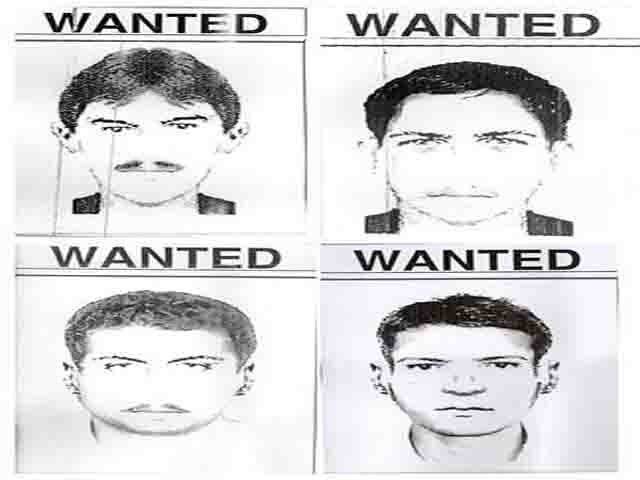Pakistani police have rounded up scores of people in their investigation of an attack on Sri Lanka's cricket team but on Thursday, two days after the gunmen fired and then melted away, no breakthrough had emerged. The ambush on the team and its police escorts as they drove to the main stadium in Lahore shocked cricket-mad Pakistan and raised new fears about the nuclear-armed nation's ability to overcome the militant threat. Seven Pakistanis -- six policemen and the driver of a bus carrying match officials -- were killed in Tuesday's attack. Faced with angry finger-pointing over the failure of the police to protect the team, a senior top Lahore official said investigators had warned the authorities of just such an attack. Two Australian umpires and an English match referee caught up in the attack slammed the security arrangements and said they were abandoned by Pakistani security forces once the shooting began. ""We were caught in a war zone," umpire Simon Taufel told reporters on his return home. "The gunfire ... it just kept going. We thought, when's it going to stop? Who's going to come and save us, how are we going to get out of here? I was expecting a bullet." Six Sri Lankan players were wounded along with two team officials, including a British assistant coach. They flew back to Colombo along with the rest of their party later on Tuesday. Pakistani police, desperate for leads, have rounded up scores of people without establishing any link, according to officials, although one investigator said they had found a cellphone that had led to the arrest of at least one real suspect. "We've made some arrests, one through a SIM card, but there has been no major catch," city police chief Habib-ur Rehman said late on Wednesday, referring to a device that holds information in a mobile phone. Foreign Minister Shah Mehmood Qureshi told a news conference with his Sri Lankan counterpart that investigators were following important leads that would eventually unearth the culprits. Sri Lankan Foreign Minister Rohitha Bogollagama said it was the first attack on Sri Lankans outside the country and he did not rule out the possibility the rebel Liberation Tigers of Tamil Eelam (LTTE) were involved. Police had warned authorities that the Sri Lankan team was at risk, said Lahore administrator Khusro Pervaiz. "It's correct that we were forewarned ... there were many pieces of information which came to us," he told a private TV Pervaiz did not elaborate but said security for the team could have been "much, much better." ICC match referee Chris Broad told a news conference in Manchester he and other match officials had been left like "sitting ducks" when the attack began. "In our hour of need we were left on our own," Taufel said. "I'm angry that we were isolated. I'm angry that we didn't get the same level of security that the players got." The umpires and players were being driven in a convoy to Lahore's Gaddafi stadium when they came under attack. The driver of the umpires' bus was among the seven people killed, leaving them stranded in the middle of the crossfire as they were unable to follow the players bus to the stadium. "The driver's foot was lodged on the accelerator and it was revving at a million miles an hour," Steve Davis, another umpire, said. "Eventually a police officer came from somewhere, dragged the driver's body out, and drove us at top speed to the stadium." The government of Punjab province, of which Lahore is capital, has offered a reward of $125,000 for information on the attackers, who were armed with AK-47s, hand grenades and rocket-propelled grenades. Television footage showed the gunmen, some of whom appeared to be in their early 20s, wearing track suits and trainers and shalwar kameez, traditional long shirt and baggy trousers. Pakistan, beset by economic problems, has reeled under a wave of bomb and gun attacks in recent years, mostly carried out by militants linked to the Taliban or al Qaeda. Commentators have mentioned similarities between the Lahore attack and November's assault on the Indian city of Mumbai in which nearly 180 people were killed. India blamed Pakistani militants and their security agency handlers.
Friday, April 19, 2024
Pakistan detains scores, but no breakthrough on attack

Opposition objects to oath-taking of MNAs amid lawlessness
5:15 PM | April 19, 2024
Electioneering to end on Friday night ahead of by-polls in 21 constituencies
5:14 PM | April 19, 2024
Fawad Chaudhry granted bail in 14 cases related to May 9 violence
5:13 PM | April 19, 2024
British Army chief lauds Pakistan Army's professionalism, expertise
5:12 PM | April 19, 2024
Israeli aircraft fire missiles at Air Force assets in Iran: Report
3:52 PM | April 19, 2024
A Tense Neighbourhood
April 19, 2024
Dubai Underwater
April 19, 2024
X Debate Continues
April 19, 2024
Hepatitis Challenge
April 18, 2024
IMF Predictions
April 18, 2024
Kite tragedy
April 19, 2024
Discipline dilemma
April 19, 2024
Urgent plea
April 19, 2024
Justice denied
April 18, 2024
AI dilemmas unveiled
April 18, 2024
ePaper - Nawaiwaqt
Advertisement
Nawaiwaqt Group | Copyright © 2024





